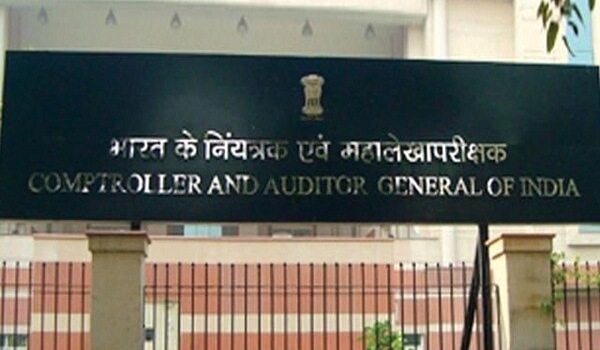In the calendar year 2023, only 18 audit reports on the Union government’s accounts, prepared by the Comptroller and Auditor General (CAG), were tabled in Parliament. A year-wise analysis shows that the number of audits on the Union Government tabled in Parliament has been decreasing.On average, 22 reports were tabled each year between 2019 and 2023, compared to the 40 reports tabled between 2014 and 2018
Office of CAG
- Comptroller and Auditor General of India, is a constitutional authority which heads the Indian Audit and Accounts Department (IA&AD). The two entities are known as the Supreme Audit Institution of India (SAI).
Mandate
- As a “Guardian of the Public Purse”, CAG is vested with the responsibility of inspecting and auditing all the expenditure of both the Central and the State Governments as well as of those organizations or the bodies which the government significantly funds.
- This is the reason why Dr. B.R. Ambedkar said that the CAG shall be the most important Officer under the Constitution of India.
Constitutional Provisions
- Article 148 provides for an independent office of the CAG.
- Other Provisions Related to CAG include: Articles 149-151 (Duties & Powers, Form of Accounts of the Union and the States and Audit Reports), Article 279 (calculation of net proceeds, etc.) and Third Schedule (Oath or Affirmation) and Sixth Schedule (Administration of Tribal Areas in the States of Assam, Meghalaya, Tripura and Mizoram).
- Appointment: The CAG is appointed by the president of India by a warrant under his hand and seal.
- He is provided with the security of tenure. He can be removed by the president only in accordance with the procedure mentioned in the Constitution.
- Tenure: Period of 6 years or until attaining the age of 65 years whichever is earlier.
- Removal: Removal of the CAG from office requires a specific process: an order from the President after receiving an address from each House of Parliament.
- For removal to take effect, the address must be supported by a majority of the total membership of that house and by at least a two-thirds majority of the members present and voting in the same session.
- Grounds for removal include proved misbehavior or incapacity.
Provisions of Independence: Major provisions include-
- The CAG’s salary and expenses are charged upon the Consolidated Fund of India.
- CAG is provided with the security of tenure and does not hold office till the pleasure of the president, though he is appointed by him.
- Upon relinquishing the office, the CAG is barred from holding any subsequent position within either the Government of India or any State Government, maintaining the independence and integrity of the office.
Role of Audits in a Democracy like India
Transparency and Accountability
- Public Trust: Audits instill confidence in the public regarding how taxpayer money is utilized, ensuring transparency in government operations.
- Accountability: They hold government bodies and officials accountable for their financial decisions and actions, preventing misuse or misallocation of public funds.
Preventing Financial Mismanagement
- Detecting Errors and Fraud: Audits help uncover errors, discrepancies, or potential fraudulent activities, ensuring corrective actions are taken promptly.
- Budget Compliance: They verify if financial activities align with budgetary allocations, preventing overspending or unauthorized expenditures.
Improving Efficiency and Effectiveness
- Identifying Inefficiencies: Audits highlight inefficiencies in processes, allowing for improvements and cost-saving measures.
- Performance Assessment: They assess the effectiveness of government programs and initiatives, guiding future policy decisions for better outcomes.
- Enhancing Decision-Making: Audit reports provide valuable insights for policymakers, aiding in informed decision-making for better governance.

